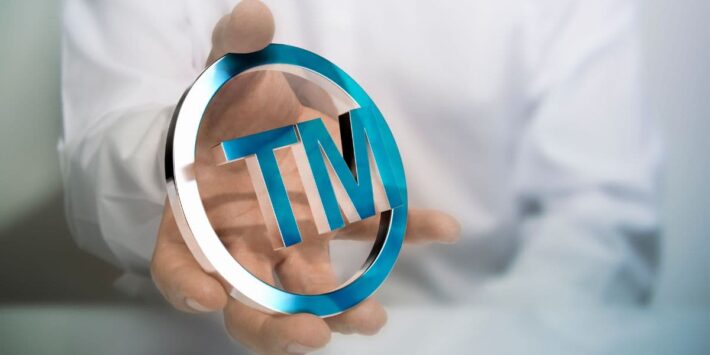Overview of Private IP Prosecutions in the UK

While most intellectual property disputes can be dealt with as a civil matter, there are a number of criminal offences involving intellectual property infringement, and it is possible for rights holders to bring a private prosecution where such an offence has been committed. This guide sets out some important considerations when contemplating bringing a private prosecution, along with an outline of the process itself.
What criminal offences are there in relation to IP infringement?
There are two main categories of IP offences:
- Section 92 of the Trade Marks Act 1994 sets out a number of offences which apply where there has been unauthorised use of a trade mark in relation to goods, i.e. counterfeiting. Someone found guilty of any of the s92 offences is liable to imprisonment for up to six months and/or a potentially unlimited fine, or a term of up to ten years imprisonment and/or a potentially unlimited fine should they be found guilty in the Crown Court.
- Section 107 of the Copyright, Designs and Patents Act 1988 sets out criminal liability relating to copyright infringement. This includes, as a non-exhaustive list, the making for sale or hire, importation for business purposes, selling and/or distribution in the course of business of an infringing copy of a copyrighted work. Someone found guilty of an offence under s107 is liable to imprisonment for up to ten years and/or a fine.
Why would I need to bring a private prosecution?
While IP prosecutions can be brought by the authorities, public bodies can often lack the resources to prosecute these offences, even where there is strong evidence to support a conviction. The option of a private prosecution allows rights holders to take action against those who are infringing their rights where law enforcement may not do so. Ionic Legal is able to support you throughout all stages of a private prosecution.
What are the benefits of a private IP prosecution?
There are potentially significant consequences for those found guilty of an IP offence. Not only do the sanctions set out above apply, but it is also possible for an offender’s assets to be confiscated under the Proceeds of Crime Act 2002. As IP crimes are considered ‘lifestyle’ offences, there is a presumption that all of the defendant’s income for the last six years is the result of criminal activity and is therefore able to be confiscated unless the offender can show otherwise.
As such, a successful IP prosecution will (i) bring individual offenders to justice and (ii) create a deterrent effect, particularly where it is known that a particular brand is active in enforcing its rights.
How do I know whether to take civil or criminal action?
There are a wide range of points to take into account when considering which avenue to pursue. These include the following, although there are many more which may be relevant:
- How strong is the case, taking into account the differing standards of proof in civil and criminal proceedings? In civil proceedings, a claimant must prove their case on the balance of probabilities, whereas in criminal proceedings, the prosecution must prove the case beyond reasonable doubt, which is a higher threshold to reach. As such, only strong cases should be the subject of criminal proceedings.
- What is the overarching goal? Criminal proceedings have a strong deterrent effect but may not be the most appropriate route if you are seeking an injunction and/or financial recovery.
- Are there reputational concerns? Civil litigation may create less public interest than criminal proceedings, although it is possible to bring an IP prosecution via a firm of investigators to reduce negative publicity.
- What are the prospective defendant’s means? Private prosecutors can apply to have their costs paid from central funds, subject to them being just and reasonable, which may be attractive in cases where there would be little prospect of recovering costs from a respondent in a civil action.
Ionic Legal can assist you in determining what the most appropriate action to take is, given your individual needs and the circumstances of the matter.
Are there any other important considerations?
A private prosecutor is under more extensive conduct obligations than a civil litigator. A civil litigator has to adhere to the ‘overriding objective’ of civil courts by assisting the court in dealing with cases justly at a proportionate cost. There may also be additional duties when dealing with litigants in person. Conversely, private prosecutors have a duty to act as ministers of justice in the same way as any prosecutor appointed by the state. They should follow the CPS Code for Crown Prosecutors and, ideally, the PPA Code for Private Prosecutors, which impose a number of obligations above and beyond those imposed in civil proceedings.
This can create challenges. By way of example, a private prosecutor is required to pursue all reasonable lines of enquiry and disclose information which may be adverse to the prosecution. Such investigations can be costly and, given private prosecutors have fewer powers than public prosecutors, it can be difficult to access documents from third parties. The defendant, conversely, is under no corresponding duty to disclose information to the prosecution.
These duties can also affect the solicitor-client relationship in a number of ways. First, the duties of disclosure override the right to assert privilege, meaning that you may be required to waive privilege and allow privileged documents to be disclosed where the relevant test is met. Second, concerns regarding contamination of evidence mean that you may not be able to see documents or information about witness evidence, including that of the defendant, until after you have given evidence at trial.
If you choose to instruct Ionic Legal on a private prosecution, we will fully explain how our role as prosecutor will affect our conduct in relation to your matter. We will endeavour to keep you as informed as possible throughout proceedings, subject to our overriding duty to the court.
What is the procedure for bringing a private prosecution?
The following provides a general overview of the steps involved in a private prosecution:
- Gathering evidence: This can be challenging given the more limited powers of a private prosecutor. As such, it is often easier to bring a prosecution when you have access to much of the evidence required, or when you have the assistance of law enforcement. Where necessary, Ionic Legal will direct further evidence gathering, which may require the involvement of our partner investigators or other experts, and work with counsel on legal strategy. All reasonable lines of enquiry must be pursued, and there must be chain of custody records for all evidence gathered.
- Decision to charge: This decision is made by Ionic Legal in conjunction with counsel. A prosecution must meet the ‘Full Code Test’, which has two limbs, to be able to proceed. The two limbs are:
- Is there sufficient evidence to provide a realistic prospect of conviction against each suspect on each charge?
- Is a prosecution required in the public interest?
- These must be continually assessed throughout proceedings.
- Laying an information: An information is a document providing a magistrate with details on the alleged offence(s) committed and the facts of the case. Ionic Legal, with counsel’s assistance, will draft this document and provide it to the court. Generally, as long as all the requirements of the information have been met, the magistrate will issue a summons or warrant, which will then be served by Ionic Legal or one of our partner investigation firms on the defendant.
- Director of Public Prosecutions (“DPP”) intervention: It is possible for the DPP to intervene in a private criminal prosecution at any stage and either take it over or discontinue it. This is most likely where the Full Code Test has not been met, but there can be other reasons for them to intervene. Ionic Legal will advise on strategy to minimise the risks of this happening.
- First appearance: This is when the defendant indicates their plea and, if the plea is not guilty, a decision is made as to whether the case is heard in the Magistrates’ Court or the Crown Court. Ionic Legal will attend this hearing alongside counsel and report the outcome to you.
- Disclosure: Ionic Legal and counsel working in conjunction will manage the disclosure process, including the requirement to produce and maintain a disclosure management document.
- Final hearing: Where the defendant has pleaded not guilty, Ionic Legal, working with counsel, will prepare for the final hearing and attend. We will also assist you in preparing to give evidence in person should this be required.
- Costs: Following the final hearing, it is possible to request an order that your costs be recovered from central funds. Ionic Legal will assist you in drafting the application. As noted above, costs orders are generally made unless there is good reason not to, although it is possible to only recover a portion of your costs if they are not found to be just and reasonable.
If you would like to discuss this topic further, please do not hesitate to contact us.




